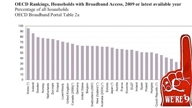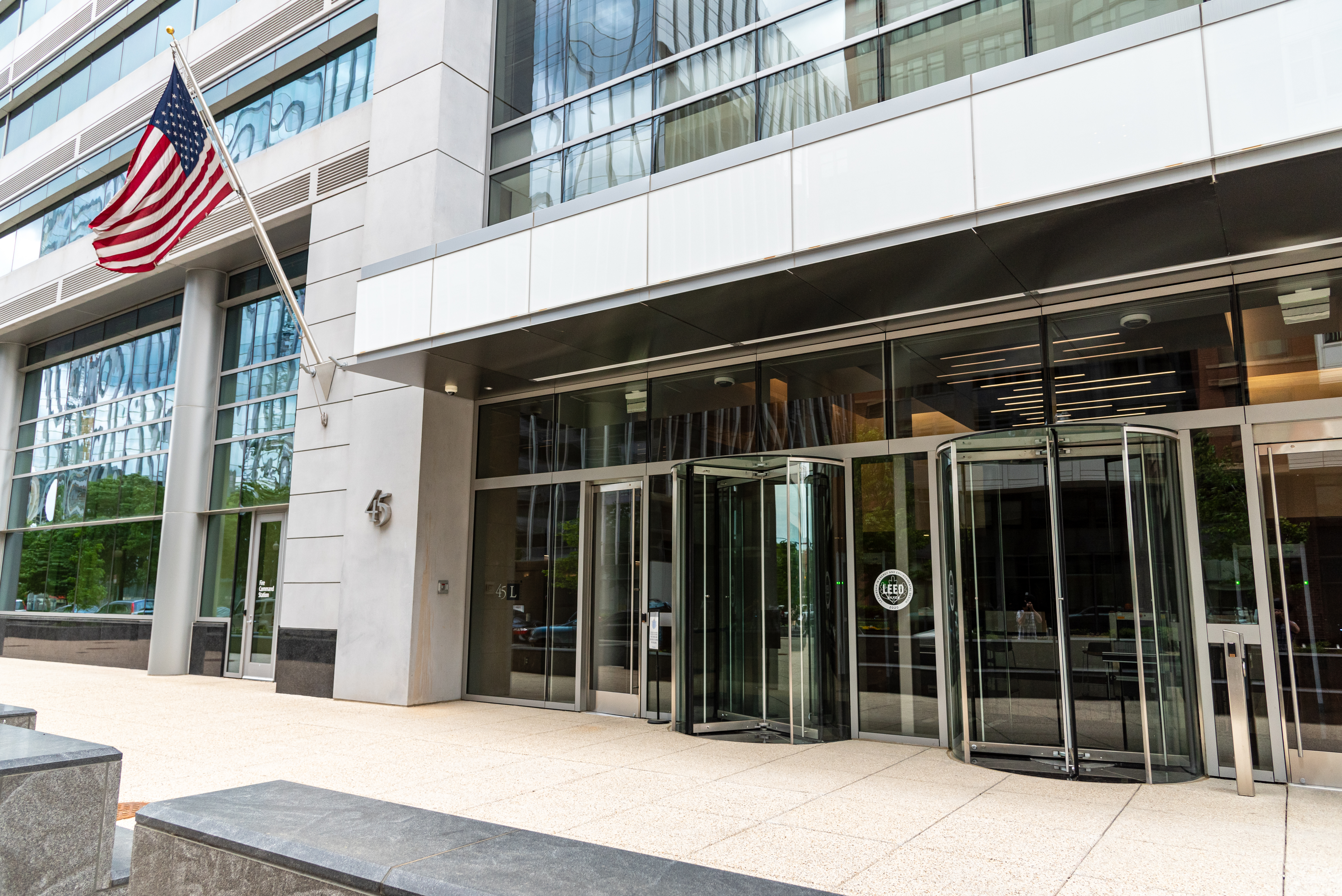United States trails in adoption of broadband technology

The FCC said last week that the United States remains behind other nations in the download speeds and adoption of broadband technology. The United States ranked ninth out of 29 countries for mobile broadband adoption on a per capita basis, and 12th out of 33 countries for percentage of households with fixed broadband.
The FCC report found the United Kingdom, South Korea and Iceland were among countries to top the United States’ 63 percent broadband adoption rate. The report was based on broadband data from Organization for Economic Co-operation and Development member countries.
Affordable Internet access for all Americans is a top priority for the Obama administration. Last year, the FCC released a National Broadband Plan, which seeks to make more airwaves available for mobile services and to upgrade Internet speeds to 25 times the current average.
Download speeds in large European and Asian cities are faster than in comparable U.S. cities, the report said. The average download speed was 11.7Mb/s in New York City with a population of nearly 8.4 million people compared with 35.8Mb/s for the 10 million residents of Seoul, South Korea.
However, the FCC acknowledged that gaps and variations in data collection methodologies across countries prevent any definitive conclusions from being made.
In a separate report issued at the same time, the FCC said about 26 million Americans — most of whom live in rural areas — do not have broadcast access. A third of Americans with access do not subscribe to broadband. This, said the FCC, is likely due to high costs, low digital literacy or concerns about privacy.
The heads of the National Cable and Telecommunications Association and the USTelecom, both lobbying groups, challenged the FCC’s conclusions in the report.
Get the TV Tech Newsletter
The professional video industry's #1 source for news, trends and product and tech information. Sign up below.
“While the commission’s headline proclaims that 20 million Americans are denied access to broadband, by that measure private investment has fueled the build-out of broadband networks to nearly 300 million consumers and is responsible for the jobs that flow from that investment,” said Michael Powell, president and chief executive of the National Cable and Telecommunications Association.
USTelecom, the broadband trade association, said FCC data showed that 95 percent of Americans have access to fixed broadband and 93 percent are happy with their service.
“Clearly the private sector is doing its part — broadband has been deployed to virtually every corner of America where a business case can be made for investment,” said Walter McCormick Jr, the group’s chief executive.
The report will be delivered to Congress in the next few weeks.
